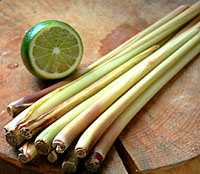Lemon Oil
Lemon Oil, Lime Oil and Lemongrass Oil: History, Preparation And Usage
Who doesn’t love the aroma of fresh citrus? Lemon, lime and lemongrass are all popular natural ingredients from which aromatic essential oils can be extracted. Essential oils made from lemon, lime and lemongrass have a variety of properties which make them useful for household, cosmetic, aromatic and therapeutic applications.
Lemon and lime oils are made by cold-pressing the rinds of the citrus fruits to extract their natural oils. Lemongrass oil is created by extracting a steam distillate from the leaves of the lemongrass plant. Each oil has its own distinct character and usage.
Lemon Oil
Origin of Lemon Oil
Lemon oil is made from lemons which are believed to have made their way to the Mediterranean countries on merchant ships from China where the fruit most likely originated. Lemons were seen in European countries during the period of the Crusades, but weren’t well-known until the sixteenth century. Lemons arrived in the New World in 1493, after Columbus started his exploration of the American continents. These lemons came from Haiti and the Dominican Republic. Lemon, whose scientific name is Citrus limon, grows on ornamental trees with white blossoms and shiny dark green leaves.
Usage, Dosage and Toxicity of Lemon Oil
Lemon oil is one of the most popular essential oils and probably the most widely used. The fragrance of pure lemon oil brings to mind the scent of fresh lemons and is distinctive from products that have been diluted or adulterated. Pure lemon oil may be mixed with natural or synthetic citral or lemongrass oil, but it is relatively easy to distinguish as impure, by scent alone. Pure lemon oil is cold pressed, as exposure to distillation at high temperatures will destroy its aromatic properties. Therefore, lemon oil should be stored tightly sealed and away from light and heat to preserve its essential qualities. Lemon oil is typically yellowish in color and has a bright, cleansing and cheerful aroma.
Uses for lemon oil are many and varied. Its bright, fresh scent is believed to be a mood elevator, stress reducer and sleep enhancer. It has also been variously used as a fever reducer, immune system strengthener and to treat digestive ailments. It is often blended with ingredients which have strongly medicinal or non-aesthetic odors to dampen or dispel their unpleasant aroma. Lemon oil is both astringent and antiseptic and is atmospherically therapeutic merely by possessing a scent which is pleasing to a majority. As a natural deodorizer and solvent, lemon oil is a good enhancer for a multitude of household cleansing and deodorizing products, such as furniture polish, dish soap, degreaser and air freshener.
The clarifying and astringent qualities of lemon oil make it a natural choice for cleansing, brightening and rejuvenating the skin. Minor abrasions may also be treated with lemon oil. A cautionary note here, is that lemon oil should not be used undiluted on the skin, as it may cause irritation. It should be diluted at the rate of less than five drops of lemon oil to a teaspoon of non-astringent oil, such as mineral or coconut oil. Lemon oil should not be used in the presence of sunlight since it contains chemical compounds which act to photosensitize the skin. Lemon oil is used in perfumes and scented lotions, specifically as an fragrance enhancer. It is an effective deterrent for annoying insects, such as mosquitoes and is often added to insecticides. Lemon oil is a natural diuretic, antiviral and antibacterial, and as such, may cleanse internal body systems, in addition to the skin. Edible lemon oil is used as a food flavoring.
Summary Of Useful, Aromatic, Citral-Containing Essential Oils
Lemon oil, lime oil and lemongrass oil are all pleasantly scented essential oils, containing the chemical citral which gives them their characteristic fresh scent. As with all essential oils, dilution is advised to counteract the possibility of irritating side effects. Lemon, lime and lemongrass oils may be ingested, applied to the skin and infused into the air, but care should be taken when doing so. Oils of lemon, lime and lemongrass are readily available as ingredients in personal care and household items, as well as through health food and herbal outlets.
Always utilized for a variety of applications, but constantly gaining in popularity due to their cheerful, restful, cleansing and revitalizing fragrances, these citrus scented oils are particularly favored for their medicinal, cosmetic, therapeutic and cleansing properties.
Essential oils of citral-containing natural products are used as liniments, air fresheners, preservatives, astringents, body tonics, detergents, cleaners and flavorings. These widely used oils are added to a multitude of common household products. Lemon oil, lime oil and lemongrass oil have been used throughout history as medical treatments for wounds, lacerations, digestive upset, muscular and joint pain, heart problems, cold and flu symptoms and diabetes. Not all applications are supported by scientific evidence.
Read also about another one citrus oil – orange oil. And non-citrus oils, very healthy and useful: macadamia oil and its health benefits, tea tree oil and oil of oregano, that used as anti-fungal and anti-viral agents and eucalyptus oil and its many medical and aromatherapy uses.
Lemon Oil, Lime Oil and Lemongrass Oil: History, Preparation And Usage | Lemon Oil | Origin of Lemon Oil | Usage, Dosage and Toxicity of Lemon Oil | Summary Of Useful, Aromatic, Citral-Containing Essential Oils
